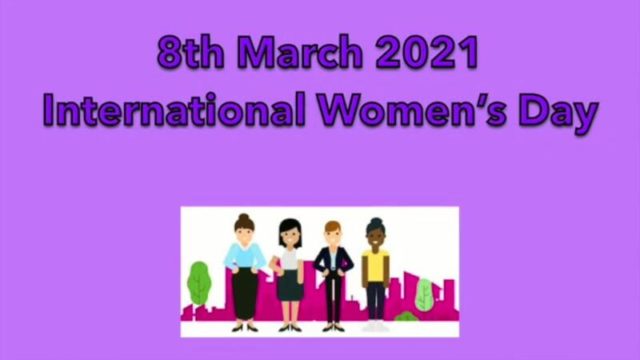To mark International Women’s Day, the embassies of Argentina, Brazil, Colombia, Mexico and Uruguay in South Africa reaffirm their countries’ commitment to gender equality.
Embassies of Argentina, Brazil, Colombia, Mexico and Uruguay in South Africa.
TODAY marks International Women’s Day. Its origin is framed in a historical context determined by deep gender inequalities, which have been narrowing but still persist today.
In 1977, the General Assembly of the UN officially designated March 8 as International Women’s Day. This year, UN Women has announced the theme for International Women’s Day as “Women in leadership: Achieving an equal future in a Covid-19 world”. The theme celebrates the tremendous efforts by women and girls around the world in shaping a more equal future and recovery from the Covid-19 pandemic.
Committed to improving the lives of women and girls, Latin American countries have adopted and implemented several actions besides taking part in multilateral initiatives.
Argentina also commemorates the Day of Working Women. Argentina has maintained in all international forums its commitment to gender equality and respect for the rights of women in all their diversity. Between 2019 and 2020, the National Ministry of Women, Gender and Diversity and the National Cabinet for the Mainstreaming of Gender Policies were created in order to guarantee the inclusion of a gender perspective as a state policy.
Gender equality is fundamental for the creation of societies that are fair and sustainable. Taking this into consideration, at the 74th UN General Assembly, Mexican Foreign Minister Marcelo Ebrard announced the adoption of a feminist foreign policy by Mexico. With this action, Mexico aims to mainstream the human rights approach, the gender perspective and intersectionality in all areas of its foreign policy. Additionally, it seeks to boost visibility of women’s contributions to global actions.
The challenge is huge. However, by adopting a feminist foreign policy, Mexico has taken an important step towards the achievement of gender equality and the establishment of a solid path, both internally and within the framework of the multilateral system.
As part of the Mexican Foreign Policy this year, together with France, Mexico will co-host the Generation Equality Forum (GEF), in partnership with civil society and youth. The GEF is a civil society-centred, multi-stakeholder global gathering for gender equality.
Uruguay commemorates International Women’s Day. Uruguay is strongly committed and is a faithful defender of gender equality and the empowerment of all women and girls in all their diversity, both in international forums and at the national level, where laws and policies have been adopted to promote equality, as well as the prevention, combat and reparation of gender-based violence.
In 2007, the National Gender Council was created by law within the framework of the Plan for Equal Opportunities and Rights, with the aim of becoming a space for defining the strategic lines of public gender policies and in 2020 the National Strategy for Gender Equality towards 2030 was elaborated as the guideline to continue to develop policies and actions for gender equality promotion.
Under the leadership of the first woman vice-president of the Republic of Colombia, the Administrative Department of Public Function, the Presidential Council for Equity for Women and the Colombian Observatory for Women, it was reported that 2020 was the year with the highest participation of women in positions of leadership in Colombia, with 45% of the positions in the maximum and “other decision-making level” segments in 2,581 entities in the country. The country’s diplomatic corps is currently headed by a foreign minister, and 48% of those who exercise leadership of the Colombian representation abroad are women.
Vice-president Marta Lucía Ramirez highlighted that “the government of President Ivan Duque will mark an irreversible path for gender equality in Colombia. We need to transform this society, from its positions of power.
“For that reason, we include a special chapter of the National Development Plan and Colombia today is already obtaining recognition for having a leadership superior to that of other countries in the innovation of public policies for the equity of gender.”
In Brazil, the National Secretariat of Policies for Women has the task of promoting and defending women and girls’ rights and dignity. In this regard, it prioritises programmes and initiatives aimed at fighting discrimination and all forms of violence against women in public and private spheres, notably femicide and sexual harassment.
For these reasons, our countries reaffirm their commitment to gender equality.








